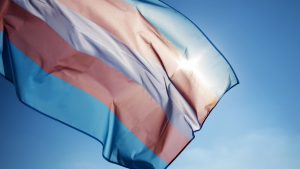A Vehicle of Violence: The Family Protection Bill 2023 and Transgender Women
Colonial legacies still majorly influence Kenya’s social and legal culture. Even where our Constitution guarantees equality and non-discrimination for all persons, transphobia remains an unfortunate reality. In this environment, trans people particularly trans women are often vulnerable to all forms of violence. This is made worse by a growing wave of anti-gender and anti-rights movement where Western transphobia is being brought into African countries through odious bills such as the Family Protection Bill.

Violence against trans women in Kenya
Trans women are vulnerable to violence not only in Kenya but also globally. A study places the exposure of trans women to violence at a rate four times higher than cisgender counterparts. In Kenya, trans women have been subjected to various methods of violence including online violence, murder, rape, harassment, and so-called “conversion” practices among other forms.
Unfortunately, due to the criminalization of same-sex practices in Kenya, most cases of violence against trans women are either not reported or are not followed up on. In a 2015 report by Human Rights Watch, one of the respondents, who is a trans woman, had her shop ransacked. Instead of following up on the matter, the police officers asked her whether she was a man or a woman and thus refused to give her a case number. The same respondent was also beaten up by four men when she engaged in sex work. She made a report to the police but nothing came out of it.
This situation fuelling violence against trans women and the subsequent lack of follow-up on such cases is credited to two issues: First, is the continued criminalization of same-sex conduct under the Penal Code, and second, is the lack of legal recognition of transgender persons in Kenya.
The Family Protection Bill
The Family Protection Bill poses a great risk of an increase in violence against trans women. The bill and discussions around it have already seen an increase in overall queerphobic rhetoric which is supported and streamlined by politicians and religious leaders. This has posed a safety threat for trans women in Kenya and is grounds for continued online violence against trans women in Kenya.
This is in addition to the phrasing of the bill which reinforces the idea that trans-ness is an agenda being pushed down the throats of Africans and which should be fought viciously. This notion is reflected in various provisions of the Family Protection Bill such as a ban on teaching “transgenderism” to children or the ban on activities that promote or support prohibited activities such as being transgender. This notion is likely to increase the amount of violence against trans women with the public feeling emboldened to ‘fight’ against the agenda.
This is especially made worse by the fact that these members of the public are given power by the Bill to arrest anyone who they suspect or have seen violating the provisions of the Bill. In the name of arrests, transphobic persons are likely to assault, extort and violate trans women.
Other provisions of the Bill that would expose trans women to violence are provisions that deny trans women from receiving gender-affirming care and provisions denying recognition of trans women through legal gender changes.
We therefore as a citizenry should unite in saying no to the Family Protection Bill in our quest to protect and defend the Constitution and all Kenyans.
John Mutiro
Legal Officer

